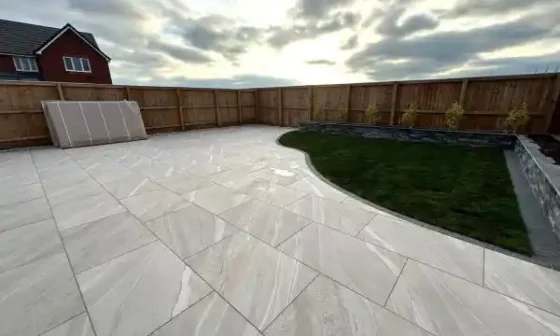
Have you ever thought, “How do I really know this house is right for me before buying it?”
It’s a common question, especially when homes are getting more expensive, and decisions feel big.
When you’re about to invest in a home, you want to feel confident, right?
Everything should be clear and smooth, from checking the structure to understanding the paperwork.
So, let’s keep it simple and practical.
Here’s what every smart homebuyer should check before saying yes to a property. No confusing words, no sales talk, just straight-up advice that helps you make good decisions.
Why A Smart Checklist Really Matters
Buying a home is not just about liking the kitchen or the view. It’s about making sure everything inside and outside the house is solid.
Many people focus only on what they can see, paint, the flooring, or the size of the bedrooms. But smart buyers also think about what’s underneath all that.
Before you move in, a little extra checking can save you a lot of time, energy, and money later. Think of it like this: You’re not just buying walls and a roof. You’re buying peace of mind.
Let’s look at what you should always check before you buy any home.
1. Know Your Budget; And Stick To It
You don’t want to stretch your finances too much. So, the first thing is to sit down and calculate how much you can spend. Not just the price of the house, but also the other things like taxes, paperwork, furniture, and small updates.
Include these in your budget:
- Legal fees
- Moving costs
- Insurance
- Utility connections
- Any repairs or upgrades you might want to do later
2. Understand What You’re Paying For
Some homes look perfect, but when you ask questions, you find out things like missing permits or half-done renovations. Ask the seller or agent to give full details of what’s included.
For example, are all appliances staying? Is the garage converted legally?
These things should be written in the agreement.
3. Inspect The Physical Condition
No matter how new or clean a house looks, checking its actual condition is a must. This is where a professional building inspection becomes useful. It checks everything: structure, roof, plumbing, wiring, insulation, and more.
Professionals look at things we usually miss. They tell you if there’s any damage, past repairs, or something that needs fixing soon. Even small cracks or leaks can lead to bigger costs if ignored.
4. Review The Building Report Carefully
Once the inspection is done, you should always ask for a full building report. This report explains the condition of the house. It’s not just about finding problems; it’s about understanding what you’re buying.
Think of it like a health report for the house. You’ll know what’s working well and what needs attention. This helps you avoid surprises after moving in.
5. Check The Paperwork And Legal Side
It’s good to go through all documents with someone who understands real estate; it could be a lawyer or someone experienced in home buying. Make sure the property title is clear, no hidden taxes are left unpaid, and building permits are in order.
Some things to confirm:
- The property is legally registered
- There’s no loan or mortgage left unpaid by the seller
- All local approvals are in place (for renovations or add-ons)
6. Think About Location Comfort
Yes, the house is important. But the area around it also matters. Is there public transport? Are schools and shops nearby? How’s the traffic? Visit the place at different times of the day.
That way, you know if the area feels peaceful and comfortable for daily living.
Things you can check near the property:
- Traffic noise during peak hours
- Street lighting at night
- Parking availability
- Water pressure and drainage
7. Ask About Property Age And Renovations
Older homes can have their own charm, but they also come with history. Ask the seller when the house was built and if any major renovations were done. You can then match this with the inspection report to see if everything adds up.
Some updates, like plumbing, waterproofing, or roof replacement, are good to know. These can also help you decide if the asking price makes sense.
8. See If The Home Matches Your Long-Term Needs
Buying a home is not something most people do every year. So, it’s better to think ahead. Will the house still work for you in the next 5–10 years?
Think about:
- Family plans (Will you need an extra room later?)
- Work-from-home space
- Storage for your stuff
- Outdoor area for kids or pets
Even if everything looks fine now, thinking a little ahead can help you stay satisfied with your decision.
9. Always Visit More Than Once
Try to go see the property more than once before you decide. The first visit is just to get a feel. The second or third visit is where you notice the real details.
Maybe the rooms look smaller with natural light, or there’s a smell you didn’t notice earlier. Even if everything’s fine, repeat visits confirm your comfort.
Quick Checklist For Easy Review
Use this checklist when visiting or reviewing a property. It helps you stay focused and makes sure you don’t overlook important details.
- Budget Planning: Helps avoid spending more than you should later on
- Legal Documents: Confirms there are no legal issues tied to the property.
- Physical Condition: Shows what areas may need attention, repair, or updates.
- Location Comfort: Ensures the surrounding area suits your daily lifestyle.
- Building Inspection: Helps uncover any hidden or less visible issues in the structure.
- Building Report: Gives a full overview of the home’s actual condition and value.
- Renovation History: Helps you understand what work has already been done.
- Future Space Needs: Make sure the home fits your long-term living plans.
10. Final Walkthrough Before Signing
Just before you complete the purchase, do one last walkthrough. This means walking around the house slowly, opening doors, windows, switches, checking taps, and looking at the walls and flooring.
This way, you’re 100% sure the house is handed over just the way you saw it.
11. Ask, Don’t Assume
If you have a question about anything, even something small, just ask.
Maybe you’re unsure about a light switch or if the backyard fence belongs to your side. Asking clears confusion. It’s better than finding out later and getting stuck.
To Sum Up
Buying a home can be one of the most exciting and proud moments in life. If you take a few extra steps before finalizing the deal, it makes your decision stronger and smarter. You don’t need to be an expert to check these things; just be clear, calm, and take your time.
A home is not just about space. It’s where comfort, memories, and everyday life happen. So when you choose your place, make sure it’s right not just for now, but for years ahead.


